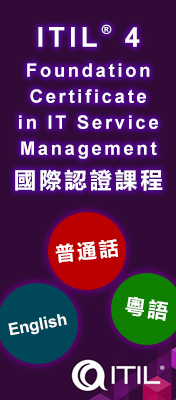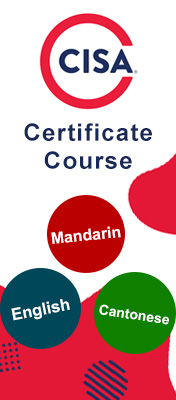課程名稱:Microsoft Certified Azure Virtual Desktop Specialty (1科 Azure VDI) 國際認可證書課程
- 簡稱:Azure Virtual Desktop Training Course |
1. Azure Virtual Desktop Architecture
1.1 Introduction to Azure Virtual Desktop Architecture
1.1.1 Azure Virtual Desktop for the enterprise
1.1.2 Azure VD’s brief Architecture
1.2 Azure Virtual Desktop components
1.2.1 Components that Microsoft manages
1.2.2 Components that Customer manages
1.3 Personal and pooled desktops
1.4 Service updates for Azure Virtual Desktop desktops
1.5 Azure limitations for Azure Virtual Desktop
1.6 Virtual machine sizing for Azure Virtual Desktop
1.7 Azure Virtual Desktop pricing
2. Design the Azure Virtual Desktop architecture
2.1 Assess network capacity and speed requirements for Azure Virtual Desktop
2.2 Azure Virtual Desktop Experience Estimator
2.3 Recommend an operating system for an Azure Virtual Desktop implementation
2.4 Balancing host pools
2.4.1 Breadth-first load-balancing method
2.4.2 Depth-first load-balancing method
2.5 Recommendations for using subscriptions and management groups
2.6 Configure a location for the Azure Virtual Desktop metadata
2.7 Recommend a configuration for performance requirements
2.7.1 Differences from other Azure resources
2.7.2 Monitoring data
2.7.3 Virtual machine host
2.7.4 Guest operating system
3. Design for user identities and profiles
3.1 Select an appropriate licensing model for Azure Virtual Desktop based on requirements
3.1.1 Virtualize Windows 10 and Windows 7
3.1.2 Virtualize Windows Server
3.2 Personal and multi-session desktop scenarios
3.2.1 Single-session (personal desktop) example scenarios
3.2.2 Multi-session Desktop example scenarios
3.3 Recommend an appropriate storage solution
3.4 Plan for a desktop client deployment
3.4.1 Workspaces
3.4.2 Subscribe to a Workspace
3.4.3 Subscribe with a user account
3.4.4 Subscribe with URL
3.5 Plan for Azure Virtual Desktop client deployment - Remote Desktop Protocol (RDP)
3.5.1 What you'll need to use the web client
3.5.2 Using the Remote Desktop client
3.6 Windows Desktop client to multiple devices
3.6.1 Configure update notifications
3.6.2 Configure user groups
3.7 Hybrid Identity with Azure Active Directory
3.8 Plan for Azure Active Directory (AD) Connect for user identities
3.9 Implementing Azure AD AD Connect Password Hash Synchronization
3.9.1 Monitoring AD Connect Synchronization Health
3.9.2 Azure AD Connect Sync Insight
3.9.3 Sync Latency
3.9.4 Sync Object Changes
4. Implement and manage networking for Azure Virtual Desktop
4.1 Azure virtual network connectivity
4.1.1 Communicate with the internet
4.1.2 Communicate between Azure resources
4.2 Manage connectivity to the internet and on-premises networks
4.2.1 Filter network traffic
4.2.2 Route network traffic
4.2.3 Virtual network integration for Azure services
4.3 Understanding Azure Virtual Desktop network connectivity
4.3.1 Session connectivity
4.3.2 Reverse connect transport
4.3.3 Session host communication channel
4.3.4 Client connection sequence
4.3.5 Connection security
4.3.6 Azure Virtual Desktop RDP Shortpath for managed networks
4.4 Network security for Azure Virtual Desktop
4.4.1 Host pool outbound access to Azure Virtual Desktop
4.4.2 Host pool outbound access to the Internet
4.5 Azure Virtual Desktop session hosts using Azure Bastion
4.6 Monitor and troubleshoot network connectivity for Azure Virtual Desktop
4.6.1 Monitor communication between a virtual machine and an endpoint
4.6.2 View resources in a virtual network and their relationships
4.6.3 Diagnose network traffic-filtering problems to or from a virtual machine
4.6.4 Diagnose network routing problems from a virtual machine
4.6.5 Diagnose outbound connections from a virtual machine
4.6.6 Capture packets to and from a virtual machine
4.6.7 Diagnose problems with an Azure Virtual network gateway and connections
4.7 Plan and implement Remote Desktop Protocol Shortpath
4.7.1 Connection flow
4.7.2 Configure Windows Defender Firewall with Advanced Security for RDP Shortpath
4.8 Plan for Quality of Service for Azure Virtual Desktop
4.8.1 Quality of Service queues
4.8.2 Quality of Service implementation checklist
4.8.3 Make sure your network is ready
4.8.4 VPN considerations
4.8.5 Insert DSCP markers
5. Storage for Azure Virtual Desktop
5.1 Storage for FSLogix components
5.2 User profiles
5.3 FSLogix profile containers
6. Host pools and Session hosts for Azure Virtual Desktop
6.1 Creating an example Host Pool
6.1.1 Prerequisites for a Host Pool
6.1.2 Reminders about Network requirements
6.1.3 Post deployment
6.2 Configuring Role Assignments
6.3 Configure application group, a workspace, and assign users in Azure Virtual Desktop
6.4 Configure email discovery to subscribe to your RDS feed
6.5 Subscribe to a Workspace on Windows
6.6 Connect to Azure Virtual Desktop with the Remote Desktop Web client
6.7 Connect to Azure Virtual Desktop with thin clients and other platforms
6.8 Adding session hosts to an existing host pool
6.8.1 Prerequisites
6.8.2 Generate a registration key
6.8.3 Creating an Azure Virtual Machine outside of Azure Virtual Desktop
6.8.4 Register session hosts to a host pool
6.9 Configure graphics processing unit (GPU) acceleration for Azure Virtual Desktop
6.9.1 VM Series that supports GPU acceleration in Azure Virtual Destop
6.9.2 Install supported graphics drivers in your virtual machine
6.9.3 Deployment considerations
6.9.4 Configure GPU-accelerated app rendering
6.9.5 Verify GPU-accelerated app rendering
6.9.6 Configure GPU-accelerated frame encoding
6.9.7 Verify GPU-accelerated frame encoding
6.9.8 Fullscreen video encoding can be enabled even without a GPU present.
6.9.9 Verify fullscreen video encoding
7. Application Group
7.1 Creating a RemoteApp Group
7.2 Updating an published application
7.3 MSIX
7.4 Enable Azure Active Directory Domain Services authentication on Azure Files
7.4.1 Create a managed domain
7.4.2 Update DNS settings for the Azure virtual network
7.4.3 Domain-join an administrative Azure VM with Azure AD DS
7.4.4 Configure Identity Authentication by Azure AD Domain Service for Azure Files
7.4.5 Domain-join a Session Host Azure VM with Azure AD DS
8. FSLogix
8.1 Introduction to FSLogix with Azure Virtual Desktop
8.2 FSLogix Key Capabilities
8.3 Creating a profile container with Azure Files and Azure Active Directory
8.3.1 Enable Azure Active Directory Kerberos authentication on Azure Files to enable access from Azure AD-joined VMs
8.3.2 Configuring Session Hosts to use Azure AD Kerberos
8.3.3 Configuring FSLogix on Session host with profile container
8.4 ODFC Containers
8.5 Cloud Cache
8.5.1 Introduction to Cloud Cache
8.5.2 Cloud Cache Components - Local Cache
8.5.3 Indexing (timed write cache)
8.5.4 Proxy File
8.5.5 High availability with Cloud Cache containers
8.5.6 BCDR options for FSLogix
8.6 Include and Exclude Groups
8.7 Custom Profile Redirections
8.8 FSLogix Application Masking
9. AutoScale
9.1 Introduction to Autoscaling for Session Hosts
9.2 Autoscale Usage Scenario
9.2.1 When Autoscale turns on a virtual machine session host
9.2.2 When autoscale turn virtual machines off
9.2.3 When autoscale forces users to sign out
9.2.4 Exclusion Tags in autoscale
9.3 Creating Autoscale scaling plan in Azure Virtual Desktop
10. Azure Compute Gallery
10.1 Introduction to Azure Compute Gallery
10.2 Create a gallery for storing and sharing resources
10.2.1 To create an Azure Compute Gallery
10.3 Image Types in Azure Compute Gallery
10.3.1 Image definitions
10.3.2 Image versions
10.3.3 Generalized and specialized images
10.4 Generalizing a VM before creating an image
10.5 Create an image of a VM
10.6 Adding Language Packs to Windows Enterprise image
10.7 Screen capture protection and Watermarking
|




